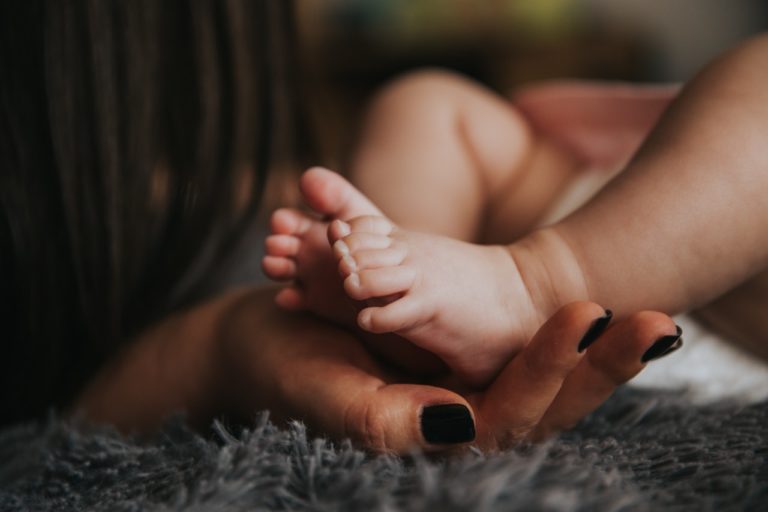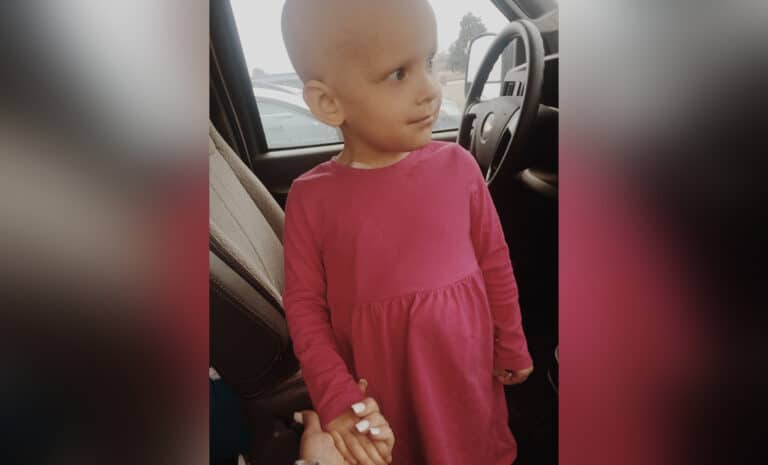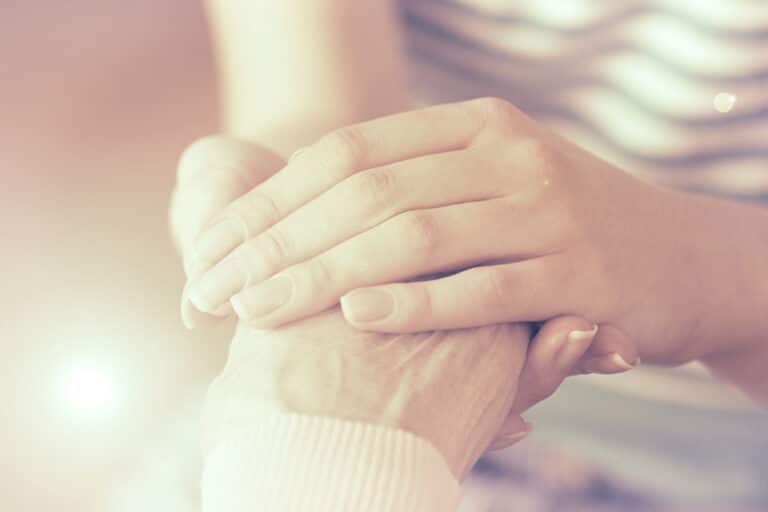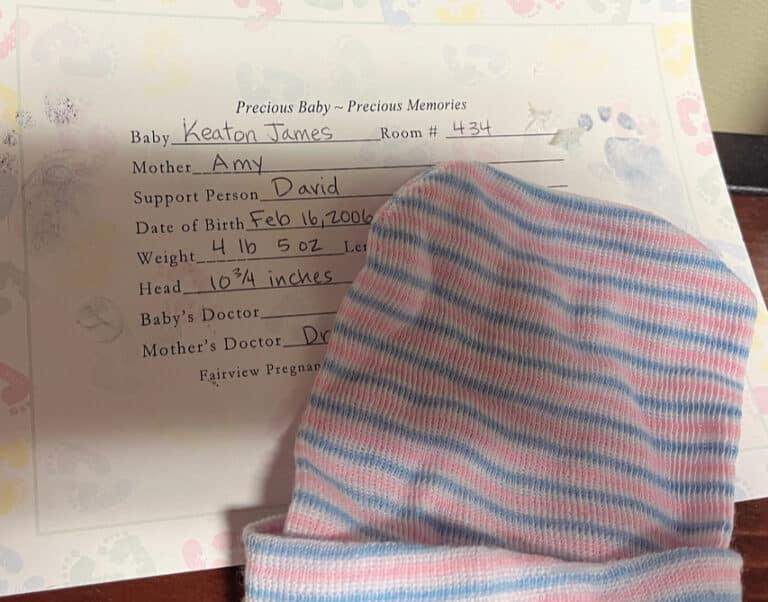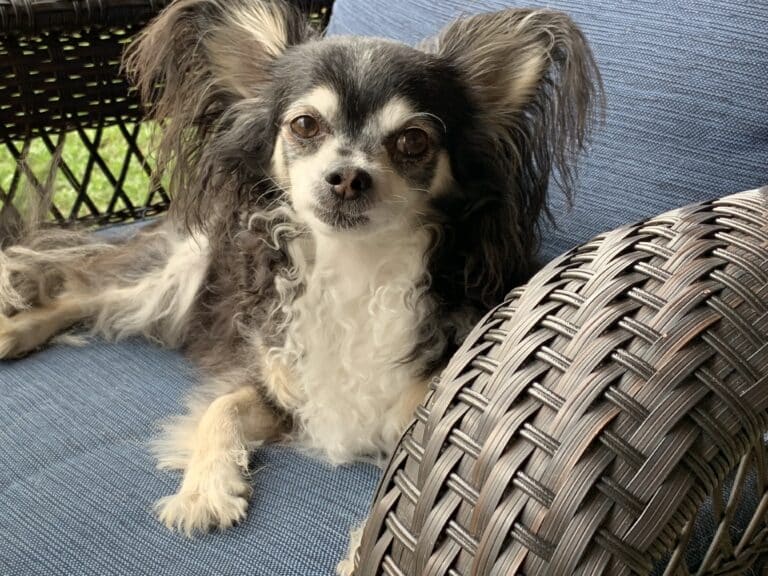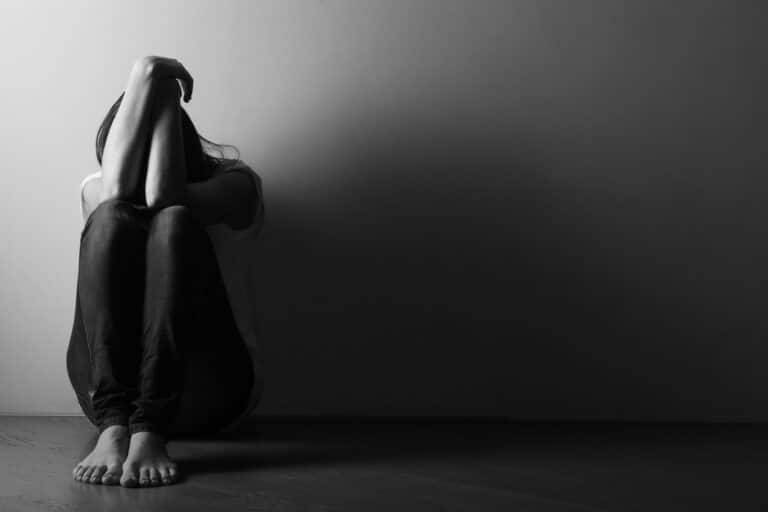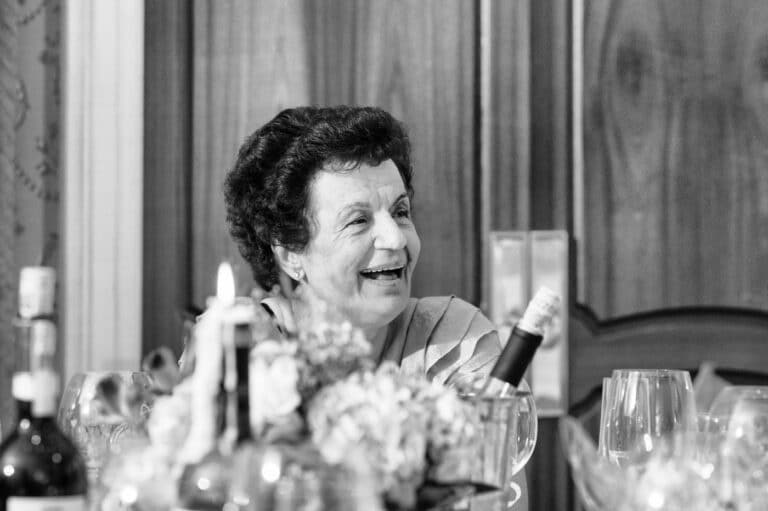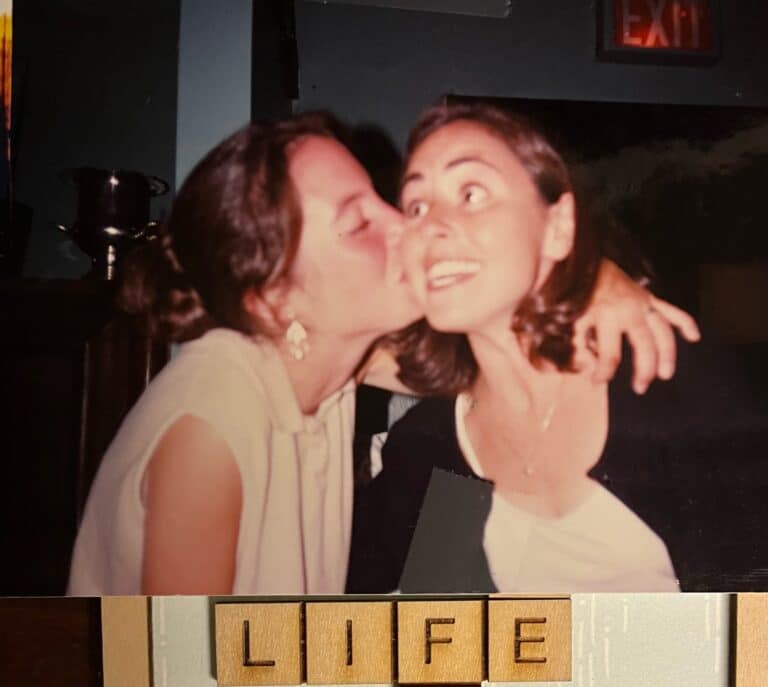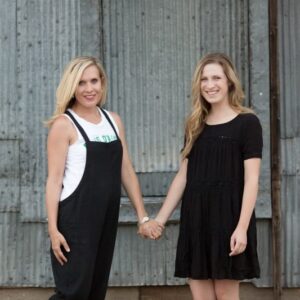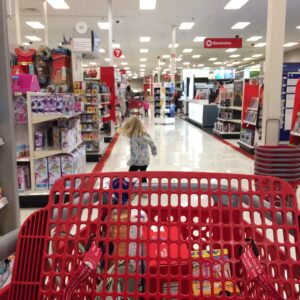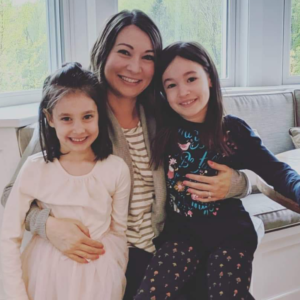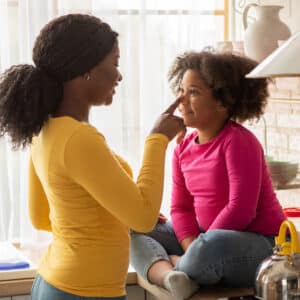I never imagined I would become this woman.
It happened to other people, people with problems, insecurities. Not to me. And certainly not now.
My paper-thin resolve wavered as the first ring sounded in my ear. If I hung up now, no one would ever know. I could go on as if everything was fine.
It wasn’t.
Before I could hang up, a voice on the other end of the line answered. I took a deep breath. I was about to admit to a perfect stranger what I’d been trying for weeks to talk myself out of: I was suffering from postpartum anxiety and depression.
Never did I think the words “depression” and “anxiety” would be in my vocabulary after the birth of my first baby. I was the kind of child who adored playing with dolls; a girl who, at age six, thought my brand new baby brother belonged more to me than to the woman who’d given birth to him. I never doubted that one day, I would be a mother myself.
My first baby’s delivery was traumatic, the birthing room a flurry of activity, her first hours spent apart from me in the NICU. But when I finally cradled her in my arms for the first time, I knew for certain this was the singular purpose of my life. This tiny creature, miraculously grown inside of my body, had her daddy’s nose and my mother’s eyes. Her entrance into the world had stopped my own and set it spinning on an entirely different axis.
I was so happy.
And for a long time, happy was exactly what we were. Meredith was a dream baby; she slept well and often, nursed with no problems, and hit every milestone right on schedule. I transitioned into my role as a mother with relative ease, too. I felt capable, confident, and fulfilled.
But at ten-months-old, my independent daughter decided she was done breastfeeding, and self-weaned in quick and decisive fashion. Logically, my previously absent monthly cycles returned; soon after, I began to notice an uneasiness creeping over me. I wrote it off. What woman hasn’t felt off-balance at some point in her life, especially with the added fuel of shifting postpartum hormones? I assured myself it was normal, nothing.
But it wasn’t long before that mild annoyance became something much more crippling. I remember with such clarity sitting in the living room of our tiny apartment, my husband kissing the baby and me goodbye as he left for work, and bursting into tears the moment the door closed behind him. I felt nauseous, panic rising in my chest, irrational fear washing over me.
I was alone with the baby I’d always dreamed of having, and suddenly it terrified me.
I told myself that in a few days, or a week, maybe a month, I’d snap out of it. Surely I’d wake up one morning without the heavy feeling of dread crushing my lungs. But it didn’t happen.
I avoided being alone with the baby to an almost obsessive degree—not because I feared I would harm her or myself, but because suddenly, I felt wholly and inexplicably incapable of being her mother. I stopped doing the things I used to love. When Meredith napped, I’d crawl into bed and turn on the TV, counting down the minutes until my husband would return home from work, the sick feeling in the pit of my stomach instantly subsiding as he walked through the door. Often, I’d pack up the baby and drive us across town to the sanctuary of my parents’ house, for no other reason than to fill the hours with company that didn’t flinch at my red-rimmed eyes and downcast spirit.
There was only one thing I was absolutely sure of: I was never going to feel like myself again. How often did I choke out those words through despondent tears in the arms of my tender but perplexed husband? It became my greatest fear, this idea that my formerly happy, confident self had been jettisoned out of my reach, replaced by this pitiful creature strangled by the fear of inadequacy.
It was a horrifying prospect. But eventually, it and the support of my family is what led me to pick up the phone and place that call to my doctor.
When the receptionist picked up the phone and cheerfully asked what I needed to be seen for, I faltered. I told her I’d had a baby a year ago, that she was wonderful, but I was feeling…
“…you’re just not feeling like yourself,” she finished for me gently. I breathed again as she assured me it was nothing to be ashamed of, how she took at least one of these calls every day from mothers just like me. “You’ll feel better,” she reassured me.
For the first time, I started to believe it.
It took a visit to my doctor, a good cry in the exam room, and a prescription for an antidepressant, but slowly I did feel better and found my footing again as a mother, stopped feeling panicked when I was alone with my daughter.
I wonder now why I waited as long as I did to ask for help. I felt awful for at least two months before I made that call. In my case, the delayed onset of symptoms probably contributed to my reluctance to call it what it was (although much less publicized, postpartum depression and anxiety can present months after delivery, or as a result of weaning and the accompanying hormone shift). But the larger, more concerning reason was that I thought I might be judged as weak or viewed as a bad mother if I admitted I needed help.
But that notion couldn’t be more wrong. CDC statistics show one in seven mothers will be affected by postpartum depression within the first year of giving birth—with the caveat that those numbers are based on women who self-report symptoms. Presumably, there are thousands more affected to some degree who are suffering in silence.
That all but guarantees you know a woman who has or will have a perinatal mood disorder—you just might not recognize it. She’s leaning on the cart behind you at Target, wearily going through the motions of buying cereal and diapers. She’s the friend you meet for coffee who spent the morning dreading this public outing for fear of being paralyzed by anxiety over what to order. She could be part of your family, quietly struggling to convince herself and everyone else there’s nothing wrong.
She might even be you.
Often, these are women you would never suspect are dealing with depression or anxiety. They’re successful. Happily married. Outwardly confident. But many are expert concealers of their inner struggle, too ashamed to admit what they worry would label them as “bad” mothers. What those women need to hear—what I, gratefully, received—is acceptance and support from others and from themselves.
There’s no shame in seeking help. Admitting you have a problem doesn’t make you a terrible mother—it makes you a normal human being. You love your baby, but recognize you can’t do it alone. There’s no shame in that. Seeking help in the form of therapy, connecting with other mothers who’ve been there, taking medication, or some combination of them all isn’t weak—it’s brave.
You are OK. You will get better. You will feel like yourself again. You may not believe that’s possible now; cling to it anyway.
It takes time. It takes action. Sometimes, it takes a phone call you’re terrified to make.
Make the call anyway. You are worth it.
Postpartum anxiety/depression resources:
Postpartum Progress (START HERE!)
Dr. Sears on Postpartum Depression
Video: We are the faces of postpartum depression (courtesy of Baby Rabies)

If you liked this, you'll love our book, SO GOD MADE A MOTHER available now!
Order NowCheck out our new Keepsake Companion Journal that pairs with our So God Made a Mother book!
Order Now

